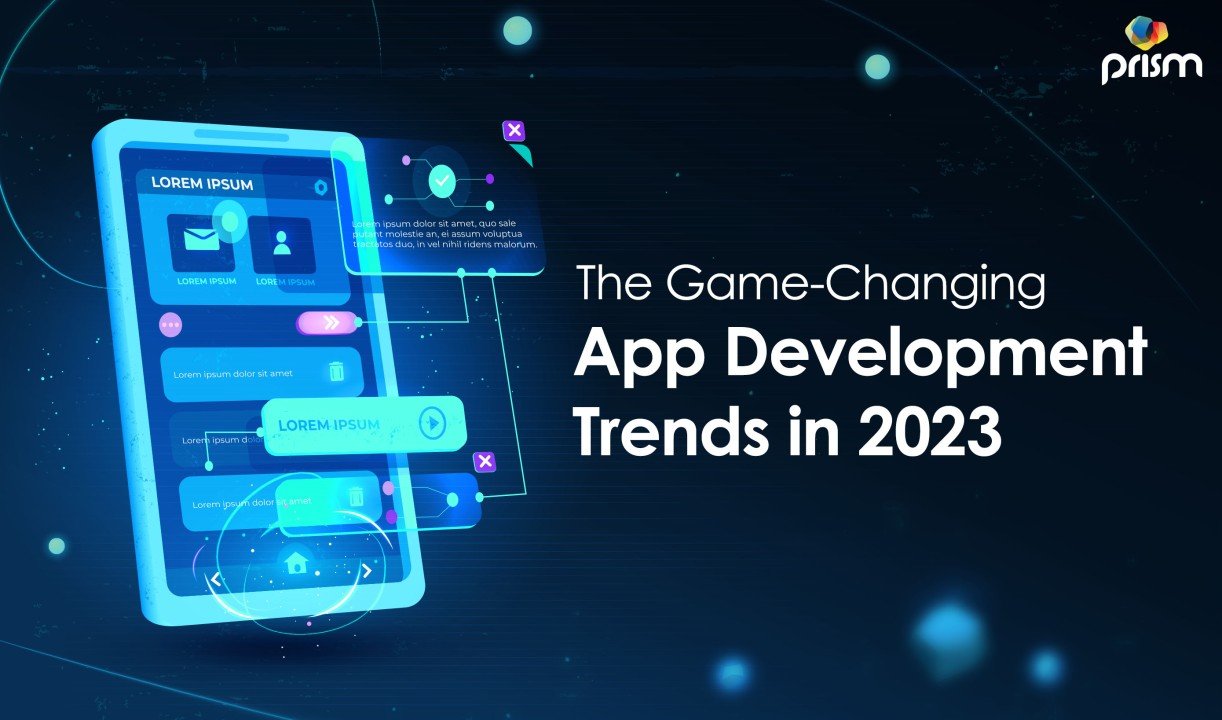
How Modern App Development Software is Revolutionizing the Industry
The evolution of app development software represents an innovative shift, reshaping industries and broadening possibilities.
Within modern app development, software has emerged as a transformative catalyst, fundamentally reshaping the conception, design, and execution of apps.
This revolution extends beyond coding, marking a fundamental change in how businesses operate, innovate, and engage with their audience.
It heralds an era characterized by efficiency, accessibility, and exceptional user experiences across diverse industries.
To capitalize on these advancements fully and remain competitive in a swiftly evolving market, businesses must upgrade their app software through collaboration with a reputable mobile app development company.
Understanding the significance of modern app development software is essential to propel business operations forward and navigate the dynamic landscape effectively.
Let’s understand the importance of modern app development software and how it advances the business’s operations.
Importance of modern app development software in the industry
Modern app development software holds immense significance in the industry due to its transformative impact on various facets of business operations:
Speed and Efficiency
Modern app development software allows swift prototyping, faster iterations, and shortened development cycles.
This adaptability allows businesses to swiftly respond to market demands, implement updates, and introduce innovative features, significantly reducing time-to-market.
Consequently, companies can promptly seize opportunities and retain a competitive advantage in the business landscape.
Cost-effectiveness
Advanced development software and tools streamline the app development journey, diminishing the time and resources needed for constructing and sustaining applications.
Through the automation of repetitive tasks, leveraging reusable components, and providing robust debugging and testing features, businesses economize on their development expenses while upholding superior app quality.
Facilitates Innovation
However, some of the advanced technologies have changed the way we work, like artificial intelligence, the Internet of Things, augmented reality, and virtual reality into app development opening doors to innovative possibilities.
Businesses can make apps that use these techs to solve tricky problems and keep up with what customers want.
The collaboration with a custom software development company can offer the expertise, resources, and strategic guidance required to navigate the complexities of integrating advanced technologies and optimizing workflows.
Improve User Experience
Integrating modern development practices and technologies yields apps that prioritize user intuitiveness, responsiveness, and engagement.
These platforms facilitate the crafting of user-centric designs, personalized experiences, and seamless functionalities within apps.
Competitive Edge
Businesses leveraging modern app development software can quickly adapt to market changes and customer feedback.
The ability to promptly innovate and implement new features or services sets them apart from competitors, lets them capture market share, and maintains a leading edge.
Cross-platform Compatibility
Utilizing tools that endorse cross-platform development, businesses can construct apps that seamlessly function across diverse devices and operating systems.
This cross-platform capacity broadens the app’s user base and guarantees uniform user experiences, irrespective of the platform employed.
Scalability and Flexibility
Modern app development software allows businesses to scale their apps efficiently as their user base or business requirements grow.
These tools offer the infrastructure and frameworks to accommodate increased demand, ensuring the app’s performance and functionality remain intact.
Collaboration and Productivity
Many modern app development platforms offer collaboration features that allow seamless
and workflow among development teams. Which increases productivity, allowing developers, designers, and stakeholders to work efficiently and effectively throughout the development lifecycle.
How Mobile App Development is helping in business Advancements
Mobile app development catalyzes substantial business advancements across multiple dimensions:
Boost Customer Reach
Mobile apps provide businesses with a direct and enduring channel to connect with customers worldwide. Thisis a great benefit to build stronger relations with customers via personalized interactions, customized content, and real-time notifications.
Improved Operational Efficiency
Tailored internal apps enhance diverse business operations by digitalizing workflows, automating repetitive tasks, and nurturing real-time collaboration among employees. Which ultimately reduced the cost and increased productivity.
Data-Driven Decision-Making
Mobile apps serve as powerful mechanisms for gathering user data, their actions, and behavior. By leveraging analytics and user insights, businesses can make informed decisions according to the customer’s needs, marketing strategies, and regarding products.
Improved Customer Service
Businesses leverage mobile apps to offer seamless customer service experiences via chatbots, instant messaging, and self-service features.
However, swift query resolution and round-the-clock accessibility heighten customer satisfaction, consequently boosting retention rates.
Agile Adaptation to Market Trends
Mobile app development enables rapid iterations and updates grounded in user feedback and market trends. Which benefits the business in so many ways and can promptly adjust strategies, update new features, and remain aligned with the customer demands.
Emerging Trends of Mobile App Development to Follow in 2024
Here we have enlisted the most emerging trends in mobile app development.
On-Demand Apps
There’s a huge chance that the popularity of on-demand apps will grow in 2024 across different sectors. These apps cater to prompt needs, from booking rides and food delivery to home services, providing swift access to a range of products and services.
Beyond conventional offerings, these apps are expanding into healthcare, fitness, and education realms, delivering personalized solutions promptly.
Beacon Technology
Beacon technology is likely to experience a surge in adoption within mobile app development by 2024. These small devices enable location-based services, personalized notifications, and interactions based on proximity.
The future might witness advancements in finer location tracking, increased battery efficiency for beacons, and deeper integration with mobile apps.
No-Code/Low-Code Platforms
In 2024, the landscape for no-code and low-code platforms is expected to mature significantly. These platforms democratize app development, encouraging users with limited coding skills to craft operational apps.
The trend is poised for potential evolution, possibly introducing AI-powered capabilities, more sophisticated templates, and increased flexibility for customization.
5G Integration
The extensive adoption of 5G technology is transforming app encounters by delivering fast speeds, reducing latency, and supporting connectivity.
This empowers continual streaming, crystal-clear video calls, and immediate data processing, fundamentally reshaping how users engage with mobile apps.
AI and Machine Learning
The AI-powered apps allow customized recommendations, predictive analytics, and AI-driven chatbots, encouraging increased user engagement and more efficient customer service.
Simultaneously, machine learning algorithms consistently enhance user experiences by iteratively refining insights derived from data.
Internet of Things (IoT) Integration
The amalgamation of mobile apps with IoT devices is broadening, empowering users to oversee smart devices via mobile apps. This trend nurtures heightened convenience, automation, and interlinked functionalities, allowing users to oversee and regulate their environment directly from their smartphones.
AR & VR Technology
AR and VR integration within apps are shaping immersive experiences across various industries. From interactive gaming and virtual tours to education and retail, these technologies enrich user engagement by creating captivating, interactive environments.
Enhanced Security Measures
With improved concerns about data privacy, mobile apps are adopting strong security protocols, including biometric authentication, encryption, and secure coding practices. This ensures the protection of user data and builds trust among users.
Progressive Web Apps (PWAs)
Progressive Web Apps (PWAs) are expanding in popularity due to their ability to deliver app-like experiences without the need for installation. Their hallmark behavior includes swift, dependable performance and offline functionalities, significantly boosting accessibility and user engagement.
Voice-Enabled Apps
The integration of voice commands within apps is becoming more prevalent, offering users hands-free interaction and convenience.
However, voice assistants and features are being leveraged to improve accessibility and user engagement.
Blockchain Integration
Blockchain technology is gaining momentum within mobile apps, offering secure and transparent transactions, decentralized apps, and improved data integrity. Its impact spans sectors such as finance, healthcare, and supply chain management.
Wrapping Up
Mobile app development has undergone swift changes, keeping pace with evolving user expectations and dynamic technological shifts. As we approach 2024, the industry props for substantial transformations that are set to redefine the trajectory of mobile app development for the future.
The main purpose of writing this blog is to empower businesses to embrace dynamic mobile app development completely to achieve long-term success.
We have mentioned the importance of dynamic mobile app development in revolutionizing the landscape of business operations, and the trends that every business need to follow in 2024.


